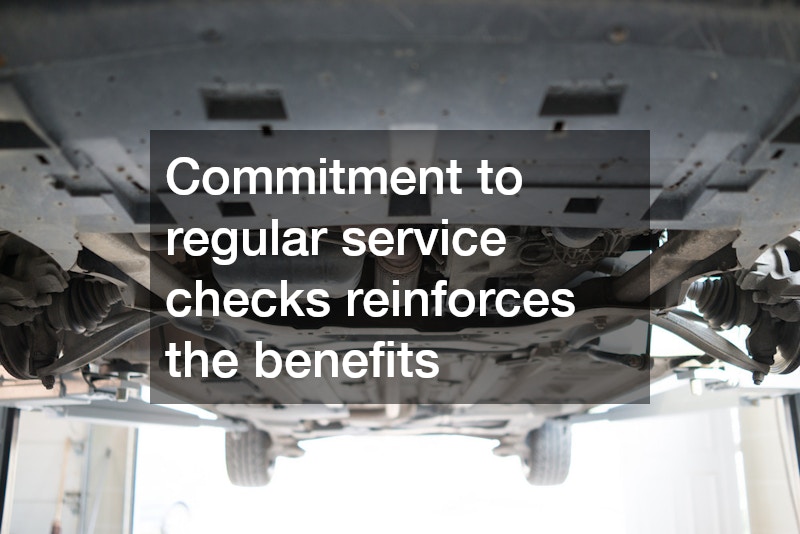
The automotive maintenance to your vehicle regularly is crucial for enhancing its longevity and ensuring optimal performance. Regular automotive care not only extends the life of your vehicle but also significantly improves safety. Additionally, proactive maintenance can help in reducing long-term costs by preventing major breakdowns.
How Often Should You Service Your Vehicle?
Identifying Personal Driving Habits and Conditions
Your personal driving habits and the environment where you regularly drive can greatly influence maintenance needs. For instance, frequent short trips or driving in extreme weather conditions might necessitate more frequent servicing. Understanding these factors can help customize your maintenance schedule for optimal performance.
Driving under dusty conditions or on rough terrains also accelerates wear and tear, requiring more attention. Adapting your maintenance routine to these conditions can prevent long-term damage. Evaluating your driving patterns can guide you in developing a tailored maintenance strategy.
Consulting with a trusted mechanic about your driving habits can provide insights into additional maintenance needs. Learning to adjust your schedule based on external conditions can lead to cost savings and vehicle longevity. A personalized maintenance plan can ensure your vehicle runs smoothly under varying conditions.
Recognizing Warning Signs
Recognizing early warning signs can prevent minor issues from developing into major problems. Unusual noises, vibrations, or dashboard warning lights are all indicators that your vehicle may need servicing sooner than expected. Proactively addressing these signs reduces the likelihood of severe and costly damage.
Failing to heed warning signals can lead to larger problems that require extensive repairs. Ignoring these signs may also compromise your safety, especially if critical systems are affected. Early intervention when warning signals first appear can save significant time and money.
Regularly inspecting your vehicle and being attentive to how it drives can detect potential issues early. Having a basic understanding of warning signs empowers drivers to act swiftly. Prompt attention to these signals ensures reliability and optimal vehicle performance.
What Are the Most Critical Maintenance Tasks?
Oil Changes and Engine Maintenance
Regular oil changes are crucial in maintaining engine health, serving as the lifeblood of your vehicle’s engine. They help in lubricating moving parts, reducing friction, and preventing overheating. Consistent oil changes ensure that your engine runs smoothly and efficiently, thereby prolonging its lifespan.
Beyond oil changes, other aspects of engine maintenance include regular checks of the coolant levels, belts, and hoses. Ignoring these elements can lead to engine overheating or failure. Ensuring that your engine is in good condition reduces the likelihood of breakdowns and extends vehicle life.
Adapting to seasonal changes by using the right type of oil for different climates is also essential. Regular engine maintenance and using high-quality oil can improve fuel efficiency. A well-maintained engine is key to maximizing performance and minimizing repair costs.
Brake System Checks
The brake system is arguably the most critical component of your vehicle when it comes to safety. Regular brake inspections ensure that brake pads, rotors, and fluids are working properly and can prevent accidents. Worn-out brakes can lead to longer stopping distances and potential hazards.
Recognizing signs such as squeaking brakes, vibrations, or a spongy pedal can indicate the need for brake servicing. Ignoring these signals can compromise your safety and lead to costly repairs. Timely brake maintenance is essential for safe driving and overall vehicle reliability.
Professional inspections can accurately assess the condition of your brake system. Proactive replacement of worn components can save money in the long term by avoiding more extensive damage. Ensuring brake efficiency is a key aspect of vehicle maintenance that should not be overlooked.
How Can You Save Money on Vehicle Maintenance?
Utilizing Discounts and Coupons
Finding discounts and coupons for automotive services can significantly reduce maintenance costs. Many service providers offer special deals, particularly for repeat customers or seasonal promotions. Regularly checking online platforms and subscribing to service newsletters can alert you to available discounts.
Using coupons for routine services like oil changes or tire rotations can accumulate substantial savings over time. Discounts can also be found through vehicle warranty programs or manufacturer promotions. Ensuring you take advantage of these offers is a smart way to manage maintenance expenses efficiently.
Frequent communication with your service provider can reveal exclusive deals or promotions tailored to your needs. Coupons not only offer immediate savings but build long-term relationships with trusted service centers. Strategic use of discounts plays a crucial role in maintaining your vehicle cost-effectively.
Preventive Maintenance to Avoid Major Repairs
Emphasizing preventive maintenance is essential to avoid significant repairs and extend vehicle lifespan. Routine checks and timely interventions can address potential issues before they worsen. Preventive care not only saves money on repairs but also ensures reliability and optimal vehicle performance.
Regular inspections and timely replacements of worn parts prevent major breakdowns and upheavals. Ignoring preventive measures can lead to unexpected failures and more extensive repairs. The upfront cost of preventive maintenance is justified by the long-term savings and peace of mind it brings.
Developing a comprehensive maintenance plan that includes preventive care ensures thorough vehicle management. Regular consultation with a trusted mechanic can guide effective preventive strategies. Prioritizing preventive maintenance is a wise investment in your vehicle’s future health and efficiency.
Regular automotive maintenance is essential for extending the life of your vehicle and ensuring safety. Following manufacturer guidelines, understanding personal driving habits, and recognizing warning signs can optimize maintenance schedules. By emphasizing critical tasks and incorporating cost-saving strategies, drivers can maintain their vehicles efficiently and economically.
Actively engaging in preventive maintenance and utilizing professional help as needed can prevent costly repairs. Investing in routine care and seeking discounts ensures that vehicle maintenance remains manageable. By fostering a proactive approach to automotive care, drivers can enjoy a safer and more reliable driving experience.
Commitment to regular service checks reinforces the benefits of maintenance, encouraging a culture of continuous automotive care. The collective efforts of following expert advice and using available resources lead to optimal vehicle health. Consider maintenance not just a necessity but a smart strategy towards a better driving future.



